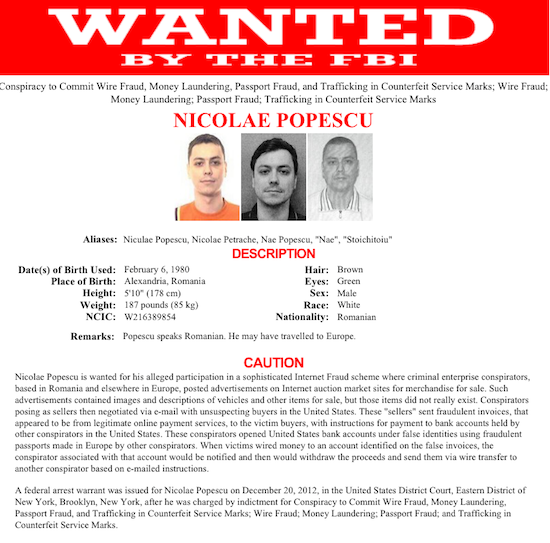Indictments unsealed in Brooklyn Federal Court for fugitives charged with cyber-fraud

On Thursday, charges were unsealed against Romanian fugitive Nicolae Popescu, the leader of an international organized crime syndicate that ran a multimillion-dollar cyber-fraud scheme, and six other fugitives charged with participating in the same scheme. Interpol has issued notices to foreign law enforcement partners seeking assistance in the apprehension of these fugitives, and the FBI has also released “Wanted” posters to facilitate their arrests.
The charges were announced by Loretta E. Lynch, United States attorney for the Eastern District of New York, based in Brooklyn; George Venizelos, assistant director-in-charge, Federal Bureau of Investigation (FBI), New York Office; and Mythili Raman, acting assistant attorney general of the Justice Department’s Criminal Division.
Popescu, Romanian nationals Daniel Alexei, Dmitru Daniel Bosogioiu, Ovidiu Cristea and Dragomir Razvan, and a defendant who goes by the names “George Skyper” and “Tudor Barbu Lautaru,” as well as Albanian national Fabjan Meme, were originally charged in a criminal complaint with six other defendants for their participation in a cyber-fraud conspiracy that targeted primarily American consumers on such U.S.-based websites as Cars.com and AutoTrader.com.
Popescu, Alexe, Bosogioiu, Cristea, Razvan and Meme have remained at large. The other defendants have been arrested.
